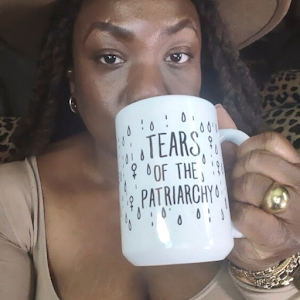I quite enjoy my Roku streaming device and am a self-professed film nerd. I'm also an avid watcher of streamed movies: whether they're cult classics, horror, Grindhouse, obscure arthouse, documentaries, or TV series – especially when they're offered through Netflix, HULU Plus, and Film Movement; so I've come to appreciate reading compiled ‘What to
Watch on Netflix’ lists, because I’m often made privy to gems I may overlook
while perusing the streamed offerings.
To note, I've been blogging for a long time, and would sometimes make film suggestions or write reviews of my own… pre-streaming, of course. I miss weighing-in and sharing what I've watched, and have enjoyed some really interesting films of late, in addition to revisiting some old favorites. So without further ado, I've been prompted to offer a list of suggested films, of my own, starting with foreign films.
Here is a list of 5 must-watch foreign films via Netflix Instant Watch, Hulu, or other...
To note, I've been blogging for a long time, and would sometimes make film suggestions or write reviews of my own… pre-streaming, of course. I miss weighing-in and sharing what I've watched, and have enjoyed some really interesting films of late, in addition to revisiting some old favorites. So without further ado, I've been prompted to offer a list of suggested films, of my own, starting with foreign films.
Here is a list of 5 must-watch foreign films via Netflix Instant Watch, Hulu, or other...
Inch’Allah Dimanche – 2001, Algeria, French and Arabic w/English subtitles; directed by Yamina Benguigui, and available on Netflix Instant Watch and the Film Movement channel via Roku.
This is one of my absolute favorite films, and I
watch it a couple times every other month.
Zouina is an immigrant woman whose husband, Ahmed,
has left her and their children in Algeria to work in France. In 1974, the French government
decided to allow families of Algerian men working in France, to legally
expatriate and join them. Zouina and her children leave the familiarity of
Algeria and loved ones, to join her husband and his tyrannical
mother (after an extended period of separation) in France. Zouina is faced with having
to navigate a completely different culture in a new country with no connections
or friends, the stifling control, neglect and abuse of her husband (who never
lets her leave the house), and the dictatorial cruelty of her mother-in-law,
who watches her every move. This is a poignant story of a woman of color
struggling to find her identity amid an unfamiliar backdrop and cast of characters.
The
Piano Teacher (La pianiste) – 2001, France/Austria, French & German w/English subtitles;
directed Michael Haneke and available on Netflix Instant Watch. Another personal favorite…
Based on a 1983 novel by Austrian Nobel
Prize winning author Elfriede Jelineke, The
Piano Teacher is about a lonely,
cold, aging, sexually repressed piano teacher named Erika Kohut (played by the
incomparable Isabelle Huppert). Erika teaches music at a conservatory in Vienna,
lives with her domineering mother, and whose restrained sexuality manifests in
various obsessive, sadomasochistic and fetishistic ways, i.e. walking around a
drive-thru parking lot to watch people have car sex, visiting the backrooms of
porn shops to watch adult movies and sniff discarded semen-filled tissues, and
self-mutilation. Erika catches the attention of a charming, assholish student named Walter Klemmer, who pursues her, and with whom she embarks on a
sadomasochistic and dysfunctional relationship. There are a lot of stark and cringe-worthy
moments, but it’s a critically acclaimed psycho-sexual drama that’s definitely
worth the watch.
Michael Haneke is known for making really jarring films that often discomfit viewers, so The Piano Teacher is par for the course as far as his oeuvre of controversial films go.
Michael Haneke is known for making really jarring films that often discomfit viewers, so The Piano Teacher is par for the course as far as his oeuvre of controversial films go.
Black Girl (La Noire de…) – 1966, French language w/English
subtitles; directed by Ousmane Sembène (based on his short-story of the same name) and available on Netflix Instant Watch (and I believe in-full, on YouTube).
Diouana is a young,
bright, and stylish Senegalese woman who moves to Antibes, France to work as a
nanny for an upper middle-class French couple she was employed by, during their
time in Dakar. Excited, Diouana looks forward to an improved and more cosmopolitan
life as a nanny on the French Riviera caring for Madame's and Monsieur’s children, but finds
upon her arrival in Antibes, that she’ll serve a humiliating and constrained life
as a glorified servant under a cruel and moody European wife and her
indifferent husband. Diouana starts to experience homesickness and deep
depression, as she rues her decision to follow the family to the French
Riviera and ponders a reprieve from her despair. This is a really compelling and heart-wrenching film that explores issues of colonialism, racism, racio-misogyny (there's a really uncomfortable dinner party scene between Diouana and her employers' guests), and identity.
Another Man’s Garden
(O Jardim do Outro Homem) – 2007, Mozambique,
Portuguese language w/English subtitles; directed by Joᾶo Louis Sol de Carvalho,
and available on Hulu.
Sofia is a headstrong
young girl and aspiring doctor in Mozambique, navigating the demands of her
chaotic home life, an impatient soccer-player boyfriend, and a sexist society
that dissuades young women from pursuing an education and believes that “sending
a girl to school is like trying to water another man’s garden.” With the
support of an understanding grandmother and friends, Sofia fights to maintain
autonomy over her decisions, as she works to realize her goal of becoming a
doctor, without having to succumb to a lecherous male (married) teacher who withholds her
final grade pending her decision to have sex with him, and who compromises her
placement at a university – despite his own bureaucratic hurdles trying to
advance his own career –, and which turns out to be a manipulative tactic utilized by
many of the male teachers at Sofia’s school. Another Man’s Garden is an interesting film that touches on several
social issues such as gender politics, safe sex, and the AIDS epidemic; as well as health, corruption, class,
and education.
 |
| Scene from Another Man's Garden |
U-Carmen eKayelistsha
– 2005, South Africa, Xhosa language w/English subtitles; directed by Mark
Dornford-May (who’s also married to the lead actress and singer, Pauline
Malefane) and available on Netflix Instant Watch.
U-Carmen
eKayelistsha is a modern rendering of Georges Bizet’s
opera, Carmen; set in Khayelistsha,
a township in Western Cape, South Africa. The entire production is sung in
Xhosa, and features high energy performances, gritty landscapes and language, and
a memorably confident interpretation and pitch-perfect singing by Pauline Malefane, who plays
the doomed titular character. This is one of the most compelling and unique
adaptations of the Bizet’s opera.










No comments
Post a Comment